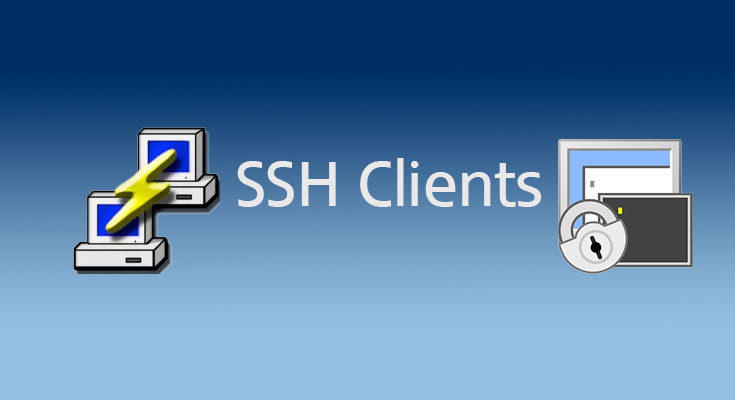You have a Linux box you want to connect to and you need an SSH client. Which do you choose? There are a lot of different options so let’s explore some popular ones.
Built-In SSH
Since this is the year 2020, every major OS has a built-in SSH client now. Yeah, I know. 15 years ago, I never thought I’d be saying Windows would have a built-in SSH client, but it does. macOS, which is based on FreeBSD, naturally has SSH built-in as well as Linux. How do you use the built-in client? Open up Terminal (macOS, Linux) or CMD (Windows) and type in:
ssh user@<IP/domain>

On Windows, it is similar.
Pros:
- It’s built-in
- It’s free
- It can get the job done in a pinch
Cons:
- It lacks scripting support
- No/limited customization
- Can be buggy (such as Windows 10’s SSH client has issues with certain editors)
PuTTY
PuTTY is a free SSH client. In fact, it does more than SSH. It can be used for serial connections and even telnet. It’s a Windows-only tool, but the fact that it’s free is one of the main reasons why it is so popular between Linux administrators and network engineers alike.

PuTTY is also pretty basic but it does allow for many additional features like saving settings and even customizing your sessions.
It has additional tools to help you generate public and private keys and use those keys with your sessions.
Pros:
- It’s free
- It works with Telnet, SSH, and Serial connections
Cons:
- Windows only
- No scripting
- Basic features
iTerm2
iTerm2 is a replacement terminal for macOS. It’s feature-loaded and it works better than your built-in terminal. Best of all, it’s free and open-source! Just like your built-in terminal, you can connect to SSH sessions like in your regular terminal. While it looks like your regular terminal, you might end up even using it more than Terminal!

Pros:
- It’s free and open-source!
- It’s highly customizable!
- Supports Python scripting
- Supports profiles
- Supports tabs and new windows
- Has logging and recording of sessions
Cons:
- macOS only
- Can’t save a list of sessions
SecureCRT
This one I saved for last because it’s my favorite. I’ve been using SecureCRT for many years. Like PuTTY, it is very popular with both Linux administrators and network engineers. Like iTerm2, it does support scripting and is heavily customizable. It has a lot more features such as built-in key management, scripting, shortcut buttons and more. It’s also the one utility on this list that is paid ($99 for 1 year of updates) but I find that the license cost it worth it with the feature set. It’s also a truly cross-platform utility as it will work on Windows, Mac, and Linux. It’s easy to move your profile from one install to another.

Pros:
- Can be used as a local terminal, telnet, SSH, and Serial
- Easily customizable
- Supports Python scripting
- Has a great community
- Has great technical support
- Has XMODEM, YMODEM
- Per-session settings
Cons:
- Costs $99 for 1 year of updates
- Can be tricky to use at first




1 Comment
Good article. Ubuntu and openssl is great as well. When It comes to free multitab ssh windows clients, I like solar-putty. Some other folks like mobaxterm.